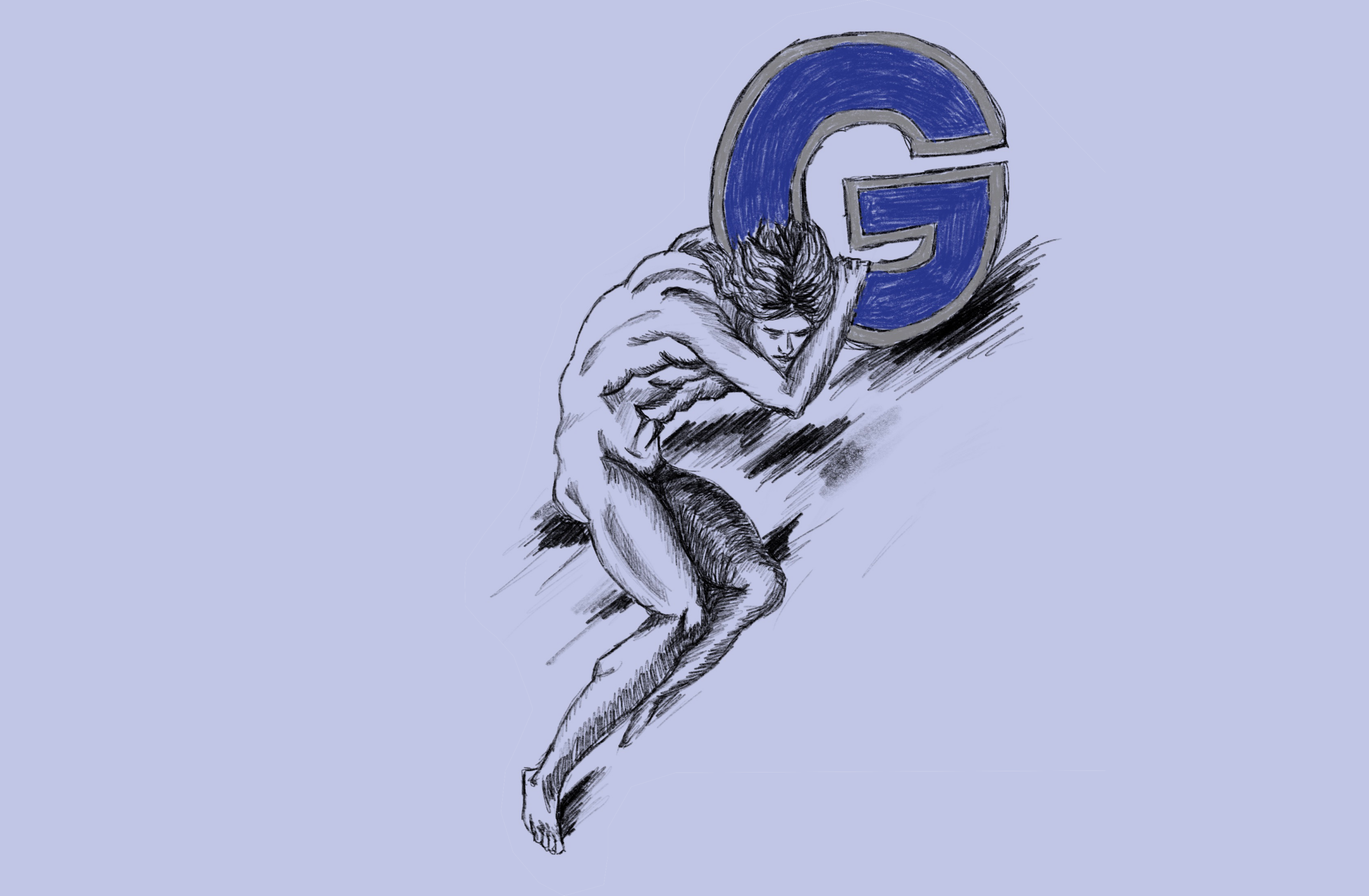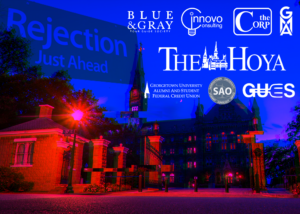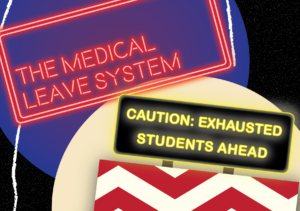Content warning: This article mentions sexual assault.
I don’t remember what it was that day, but the second I closed the door to the Voice office in Leavey Tower, I started sobbing.
To be honest, my tears last semester could have been caused by any Voice crisis—a positive COVID-19 test that needed contact tracing, an interpersonal conflict I was never trained to solve, a pressing question no one from the university could answer. The crises went from mildly funny in their sheer number to panic-inducing.
The truth is, I spent my fall semester as the Voice’s editor-in-chief exhausted. That’s hard to write—these words feel like a betrayal of something not quite nameable. It was impossible to admit I was tired, beaten-down, and depressed when all I wanted to do was gather the organization and assure them we’d make it through, whatever that meant. The idea that this organization that I love dearly, that I find crucial to this campus, could hurt me was so novel I could barely say it.
I never want the Voice, the people or the publication, to be seen as the fundamental cause of exhaustion. They weren’t—Georgetown’s lack of support for student leaders is.
Because, from what I’ve seen, the Voice doesn’t burden its members more than other clubs on campus. All members of student-run organizations—leaders or not—are forced to shoulder burdens of student mental health, COVID-19 prevention, training, and interpersonal harm mitigation that the university doesn’t pick up. Georgetown, flush with lackluster resources, is knowingly relying on an under-supported, undertrained, and largely unpaid crop of student leaders to create a basic system of community care.
We take on the responsibility of caregiving alongside our leadership because we know our community needs it, and we slowly forget that we signed up for something else entirely. I joined Voice leadership because I loved what it stood for and I wanted to feel the thrill of producing a magazine; I stayed because I had to for the Voice to be what I wanted. I don’t think I’m alone in this.
Of course, any half-decent leader cares about those around them, but that cannot—and was never intended to—replace institutional and material systems of support and guided training. The lack of those systems is the root of the problem. Students, faced with life-threatening wait times at CAPS and few other resources, turn to their peers for support. But one untrained student cannot be a match for the panic attacks, mental health worries, and everyday stressors of a whole group.
The default guidance is to simply outsource these pressures to CAPS, HES, or other university resources. But these resources are under water themselves, and in the weeks or months a student could wait for an appointment, we are the ones providing the day-to-day mental health support to our peers and friends.
Not every worry a member of the Voice felt came to me. But the knowledge that at any time I could be confronted with a mental health crisis I was not equipped to handle constantly ate at me.
Pervading all of the crises leaders handled last semester was the pandemic. While Georgetown technically provided information on how student groups should conduct themselves, the burden of making real-time decisions fell entirely on students. I had to decide what defined a “close contact” exposure in our office, how many tests people needed after exposure to return to in-person and when, and how many exposures meant we should move meetings online. Every time someone sent me a new COVID-19 inquiry (and it was multiple times a week, every week), my heart rate ticked up. We became novice contact tracers, informing our staff of exposures days before university contact tracers did. No matter what decision I made, I worried it was a mistake.
Surely, we were going about it the best way we could, because who even knew what was happening anyway? At the time it felt like a necessity. But I never should have been responsible for the health and safety of 100 fellow students without any training or individual guidance. In fact, that seems exactly like a situation the university would have preferred to avoid.
Relieved of my duties in November, having made it through at some unknown cost, I can’t stop thinking that I should never have had to be that tired, pushed to the point of existential exhaustion. Yes, the financial stability that enables us to dedicate hours of unpaid work to this organization, or anywhere, is a privilege. And yes, leadership is a growing experience during which you’ll make mistakes. But leading without ever being told how to avoid those mistakes is a patently unfair expectation.
On the day to day level, it is student leaders, not administrators, who keep the university humming. And we do all that without any training on how to. We do it feeling like we are failing every day, because how can we not be? How can we consider this patchwork system of care and accountability anything close to success?
When Georgetown fails me, they are also failing every single person who wants to feel safe from COVID-19, shape more inclusive environments, or have clear answers from the university. It is the student leaders who navigate a chronically understaffed Center for Student Engagement to ensure their clubs have the funding they were promised, and it is the student leaders who will raise more money when funds mysteriously disappear. We are the ones who take disclosures from survivors of assault or harassment and navigate a Title IX system that prevents us from removing the accused from our spaces to keep our friends safe. We do racial diversity and equity work without funding or much training ourselves; we do what we can to shape ourselves and our members into ambassadors of a more compassionate and welcoming Georgetown.
I have no illusions that Georgetown will suddenly rethink its approach to student care and vastly improve its infrastructure to shift the burden off student leaders. These issues of community care and improvement are likely to be considered marginal, relegated to the vague category of “student life” for years to come. But if that’s the plan, the university needs to own up to that. And they need to make sure anyone who’s doing their job for them knows what the hell they’re supposed to be doing.






